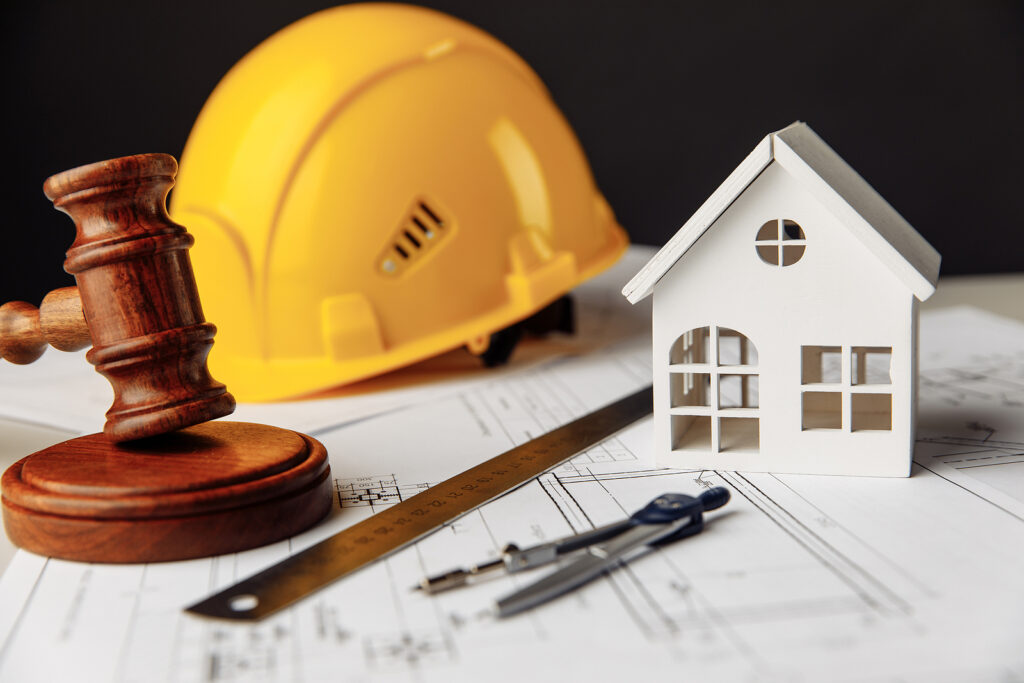Building and construction law is a vital area of legal practice that governs the rights, responsibilities, and relationships between parties involved in the construction industry. For Sydney residents, understanding this field is essential, whether one is a homeowner planning a renovation, a builder, or a contractor. This guide aims to demystify building and construction law, providing clarity on its various aspects and how it impacts everyday life in Sydney.
The Basics of Building and Construction Law
At its core, building and construction law encompasses a range of legal issues related to the construction of buildings and infrastructure. This includes everything from contract negotiations, project financing, and compliance with local regulations to dispute resolution and liability issues. Understanding these basics can help individuals navigate the often complex landscape of construction projects. It is essential for stakeholders, including contractors, architects, and property owners, to have a firm grasp of these legal principles to mitigate risks and avoid costly disputes that can arise during the construction process.
Key Legislation
In New South Wales, several key pieces of legislation govern building and construction law. The Home Building Act 1989 is one of the most significant, as it regulates residential building work and provides protections for homeowners. This act outlines the rights and obligations of builders and homeowners, ensuring that both parties are protected throughout the construction process. Additionally, the act mandates that builders must hold a valid licence and provide a written contract for work exceeding a certain monetary threshold, thereby promoting transparency and accountability in the industry.
Another important piece of legislation is the Building and Construction Industry Security of Payment Act 1999, which aims to ensure that contractors and subcontractors are paid promptly for their work. This law provides a framework for resolving payment disputes, making it easier for those in the construction industry to secure their earnings. By establishing a clear process for claiming payments, the act helps to prevent cash flow issues that can jeopardise projects and lead to financial instability for smaller contractors, who often rely on timely payments to sustain their operations.
Types of Contracts
Contracts are an integral part of building and construction law. They outline the terms and conditions under which a construction project will be carried out. There are various types of contracts used in the industry, including fixed-price contracts, cost-plus contracts, and design-and-build contracts. Each type has its advantages and disadvantages, and understanding these can help parties choose the right contract for their specific project. For instance, fixed-price contracts provide certainty regarding costs but may lead to disputes if unexpected issues arise during construction, while cost-plus contracts can offer flexibility but may result in higher overall expenses if not managed properly.
Moreover, the choice of contract type can significantly influence the project’s risk allocation. For example, in a design-and-build contract, the contractor assumes greater responsibility for both design and construction, which can streamline communication and reduce the likelihood of disputes between different parties. However, this also places the onus on the contractor to ensure that the design meets the client’s expectations and complies with all relevant regulations. Therefore, it is crucial for all parties involved to carefully consider their options and seek legal advice when drafting and negotiating contracts to ensure that their interests are adequately protected throughout the duration of the project.
Common Issues in Building and Construction Law
Despite the regulations in place, disputes often arise in the construction industry. These disputes can stem from various issues, including delays, defects in workmanship, and disagreements over contract terms. Knowing the common issues can help residents identify potential problems early on and take proactive measures to address them.
Defective Workmanship
One of the most frequent issues in building and construction law is defective workmanship. This can include poor construction practices, the use of substandard materials, or failure to comply with building codes. Homeowners who encounter defective workmanship have the right to seek remedies, which may include repairs, compensation, or even legal action against the builder.
Delays and Disruptions
Delays in construction projects can be costly and frustrating. They may arise from various factors, including adverse weather conditions, supply chain issues, or disputes between contractors. Understanding the legal implications of delays, including the potential for claims and penalties, is crucial for both homeowners and builders. Proper contract management can help mitigate these risks.
Payment Disputes
Payment disputes are another common issue in the construction industry. These disputes can occur when a contractor or subcontractor is not paid for their work or when a homeowner refuses to pay due to perceived deficiencies in the work performed. The Security of Payment Act provides mechanisms for resolving these disputes, but it is essential for all parties to understand their rights and obligations under this law.
Resolving Disputes in Building and Construction Law
Disputes are an unfortunate reality in the construction industry, but there are several avenues for resolution. Understanding these options can help Sydney residents navigate conflicts effectively and efficiently.
Negotiation
Negotiation is often the first step in resolving a dispute. It involves direct discussions between the parties to reach a mutually agreeable solution. Effective negotiation can save time and money, making it a preferred method for many. However, it requires good communication skills and a willingness to compromise.

Mediation and Arbitration
If negotiation fails, mediation and arbitration are alternative dispute resolution (ADR) methods that can be employed. Mediation involves a neutral third party who helps facilitate discussions between the parties, while arbitration is a more formal process where an arbitrator makes a binding decision. Both methods can be quicker and less costly than going to court. Learn more about how to choose the best construction lawyers in Sydney for your project.
Litigation
When all else fails, litigation may be necessary to resolve a dispute. This involves taking the matter to court, where a judge will make a ruling based on the evidence presented. While litigation can provide a definitive resolution, it is often time-consuming and expensive. Therefore, it is usually considered a last resort.
Legal Rights and Obligations
Understanding legal rights and obligations is crucial for anyone involved in construction projects. Both builders and homeowners have specific rights that protect them throughout the construction process.
Homeowners’ Rights
Homeowners have the right to expect that the work performed on their property will be of a reasonable standard and comply with all relevant building regulations. They are also entitled to clear communication from builders regarding project timelines, costs, and any potential issues that may arise. If a homeowner believes their rights have been violated, they have several options for recourse, including lodging a complaint with the relevant authorities.
Builders’ Rights
Builders also have rights that protect them in their dealings with homeowners. They have the right to be paid for their work, receive clear instructions, and expect that the homeowner will not interfere with the construction process. Understanding these rights can help builders protect their interests and ensure that they are treated fairly throughout a project.
Choosing the Right Legal Representation
For those involved in building and construction disputes, selecting the right legal representation is crucial. A solicitor with expertise in construction law can provide invaluable guidance and support throughout the process.
Experience and Expertise
When choosing a solicitor, it is essential to consider their experience and expertise in building and construction law. Look for a lawyer who has a proven track record in handling similar cases and understands the intricacies of the local laws and regulations. This knowledge can make a significant difference in the outcome of a dispute.
Communication and Support
Effective communication is vital in any legal relationship. A good solicitor will keep clients informed and provide clear explanations of the legal processes involved. They should be approachable and willing to answer questions, ensuring that clients feel supported throughout the entire process.
Cost Considerations
Legal fees can vary significantly, so it is essential to discuss costs upfront with any potential solicitor. Some may offer fixed fees, while others may charge on an hourly basis. Understanding the fee structure can help clients make informed decisions and avoid unexpected expenses.

Conclusion
Building and construction law is a complex but essential area of legal practice that affects many Sydney residents. By understanding the key principles, common issues, and legal rights involved, individuals can better navigate the construction landscape, whether they are homeowners, builders, or contractors. With the right knowledge and legal representation, it is possible to resolve disputes effectively and ensure that construction projects are completed to a satisfactory standard.
For anyone considering a construction project or facing a dispute, seeking professional legal advice is highly recommended. This proactive approach can help safeguard investments and ensure compliance with all relevant laws and regulations, ultimately leading to a successful outcome.

